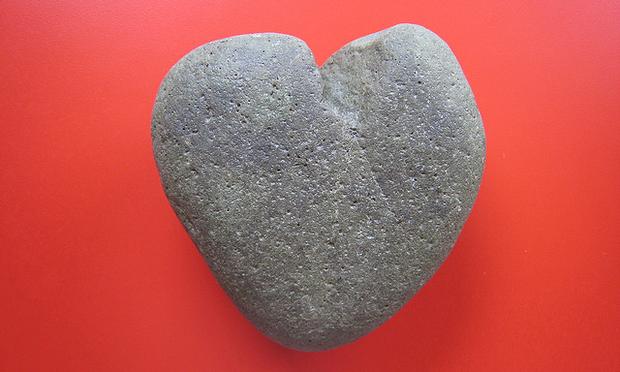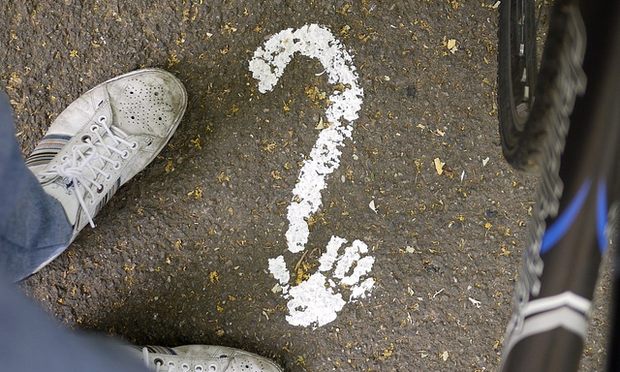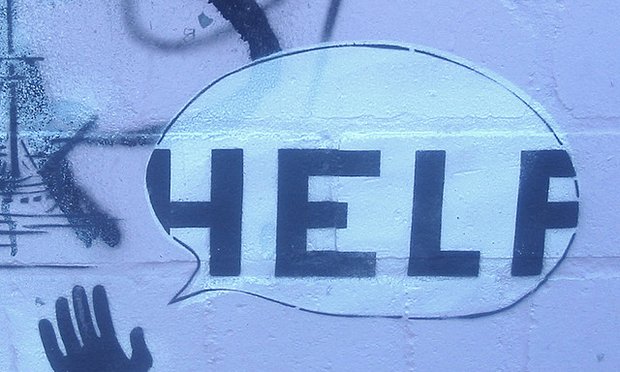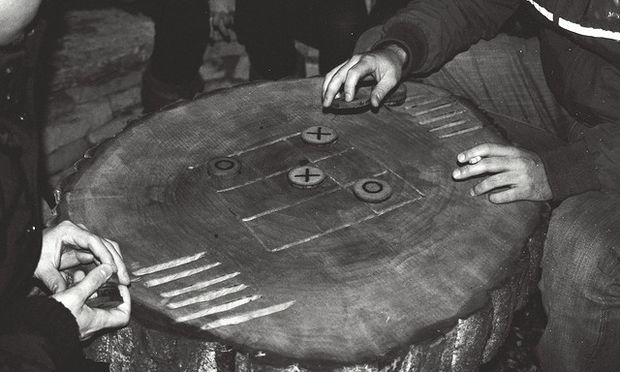Religion
Related: About this forumThe Good Show

Season 9 | Episode 1
In this episode, a question that haunted Charles Darwin: if natural selection boils down to survival of the fittest, how do you explain why one creature might stick its neck out for another?
The standard view of evolution is that living things are shaped by cold-hearted competition. And there is no doubt that today's plants and animals carry the genetic legacy of ancestors who fought fiercely to survive and reproduce. But in this hour, we wonder whether there might also be a logic behind sharing, niceness, kindness ... or even, self-sacrifice. Is altruism an aberration, or just an elaborate guise for sneaky self-interest? Do we really live in a selfish, dog-eat-dog world? Or has evolution carved out a hidden code that rewards genuine cooperation?
Three audio segments:

Why does selflessness exist?
GUESTS: Richard Dawkins, Oren Harman and Carl Zimmer
http://www.radiolab.org/story/103983-equation-good/
22:16

Is there such a thing as a purely selfless deed--one with no hidden motives whatsoever? Walter F. Rutkowski from the Carnegie Hero Fund spends his days measuring good deeds by some very stringent criteria--such as risking your life "to an extraordinary degree while saving or attempting to save the life of another person." We got in touch with three of these bona fide heroes to ask what went through their minds the moment they leapt into action. The heroes: Lora Shrake (who squared off with a 950-pound bull); Bill Pennell (who repeatedly dove into a burning car for survivors); and Wesley Autrey (who jumped in front of a subway train to save a fellow rider).
GUEST: Walter F. Rutkowski
http://www.radiolab.org/story/104009-i-need-a-hero/
15:52

In the early 60s, Robert Axelrod was a math major messing around with refrigerator-sized computers. Then a dramatic global crisis made him wonder about the space between a rock and a hard place, and whether being good may be a good strategy. With help from Andrew Zolli and Steve Strogatz, we tackle the prisoner’s dilemma, a classic thought experiment, and learn about a simple strategy to navigate the waters of cooperation and betrayal. Then Axelrod, along with Stanley Weintraub, takes us back to the trenches of World War I, to the winter of 1914, and an unlikely Christmas party along the Western Front.
GUESTS: Robert Axelrod, Steve Strogatz, Stanley Weintraub and Andrew Zolli
http://www.radiolab.org/story/104010-one-good-deed-deserves-another/
23:50
http://www.radiolab.org/story/103951-the-good-show/
Jim__
(14,077 posts)... willingness to sacrifice.
I don’t believe we know how altruism actually came about.
Suppose it originally arose as a set of genes that inclined organisms to sacrifice individuals for the benefit of a group of related individuals. That may have been implemented in the phenome by a willingness to sacrifice for the in-group. At first, in-groups most likely consisted of related individuals, so the effect would be an enhanced probability of the survival of individuals with those genes.
As generations pass, human groups become more complex and the likelihood that another member of the group is related decreases. However, if the phenomic implementation is a willingness to sacrifice for the in-group, in these more complex societies, individuals would be willing to sacrifice for some subgroup of the group, even though none of the subgroup was actually related.
I believe this is what we see today, For instance, soldiers are willing to sacrifice their lives for the entire group even though only a slight percentage of the group is related to them. The long term effects of an evolutionary selection for altruism may be an implementation of a genuine willingness of individuals to sacrifice for the benefit of the group.
rug
(82,333 posts)One being whether biological systems are more successful when based on cooperation or competition.
At a higher level of organization, whether social systems are more successful when based on cooperation or competition.
Jim__
(14,077 posts)Just to add a little wrinkle, phys.org has an article Microbes may encourage altruistic behavior. An excerpt:
 [/center]
[/center]
Why do people commonly go out of their way to do something nice for another person, even when it comes at a cost to themselves—and how could such altruistic behavior have evolved? The answer may not just be in our genes, but also in our microbes.
In a new paper, researchers Ohad Lewin-Epstein, Ranit Aharonov, and Lilach Hadany at Tel-Aviv University in Israel have theoretically shown that microbes could influence their hosts to act altruistically. And this influence could be surprisingly effective, with simulations showing that microbes may promote the evolution of altruistic behavior in a population to an even greater extent than genetic factors do.
…
Against this backdrop, the researchers in the new study have proposed that microbes may induce a person to help others because the close physical contact (for example, food-sharing, co-sheltering, and grooming) increases the transmission of the microbes from one person to another. So when someone does something nice for us, we are not just the recipient of a kind act, but also of their microbes.
To show that this idea can have a prevailing effect on a population over time, the researchers designed simulations of interacting individuals, some with altruism-inducing microbes, and some without. Then using a prisoner's dilemma payoff scheme, the researchers investigated what happens to this population, its microbes, and its altruistic behavior over many generations.
more …